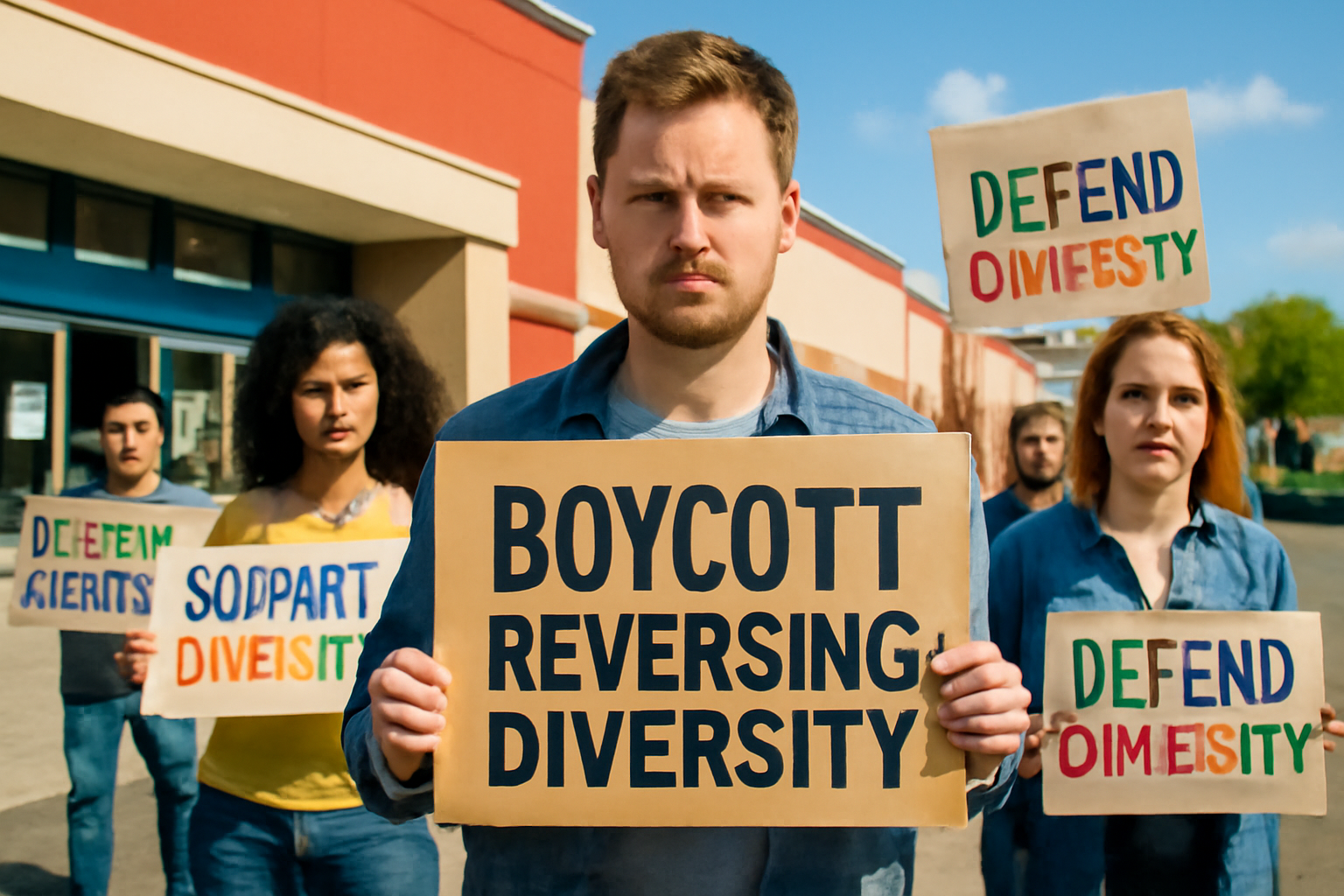
Consumers Take a Stand Against Companies Reducing Diversity Initiatives
On February 28, consumers across the nation have initiated a 24-hour boycott targeting stores that have significantly reduced or eliminated their diversity, equity, and inclusion (DEI) initiatives. This boycott is the first in a series of planned actions by consumers and activists aimed at sending a strong message to companies that have rolled back on their commitment to DEI.
This economic protest comes in the wake of policy changes at the federal level, prompted by former President Donald Trump's administration, which sought to entirely eliminate DEI programs. This political climate has influenced many corporations to reconsider or reduce their own DEI efforts.
"It definitely does send a political message to these companies that we're watching them and that we're not going to let them get away with abandoning our causes," said Jason Williams, a professor of Justice Studies at Montclair State University in New Jersey, during an interview with USA Today.
Organizers and Activists Speak Out
The boycott's primary organizer, John Schwarz, known on social media as TheOneCalledJai, is leading the charge. Schwarz has been vocal about the necessity of this boycott, citing widespread frustration with what he describes as "corporate greed."
In a series of videos posted online, Schwarz has rallied support, emphasizing that the collective power of consumers can influence corporate behavior. "For decades, they have told us that we are powerless, that we have no control, and that this system is too big, too strong, too unshakable. We are going to remind them who has the power," he asserted in one of his videos.
Schwarz's message resonates with many who feel disillusioned by companies that once championed progressive values but have since retreated due to external pressures. "We the people are the system," Schwarz declared, urging citizens to participate in the boycott to demonstrate their influence over these corporate giants.
Boycott Targets and Future Plans
This initial boycott has specifically targeted major retailers such as Target, Walmart, Best Buy, and McDonald's. These companies have come under scrutiny for scaling back their previously robust DEI initiatives. For instance, Target has faced particular backlash after previously being seen as a leader in DEI commitment following the murder of George Floyd in Minneapolis in 2020.
In addition to the February 28 action, further boycotts are planned, including a major one-day economic blackout scheduled for April 18. Companies like Amazon and Nestle are also being targeted in upcoming protests as the movement gains traction.
The ongoing national boycott of Target, which started on February 1 to coincide with Black History Month, was launched by civil rights activists in Minneapolis as a response to Target's reduction in DEI programs. This action underscores a broader dissatisfaction and a demand for accountability from corporations that publicly supported DEI but have since retreated.
The Impact and Historical Context of Boycotts
History has shown that boycotts can be effective tools for social change. For example, the beer brand BudLight experienced significant economic fallout after conservatives initiated a boycott against them over a brand campaign featuring trans influencer Dylan Mulvaney. Now, with this pro-DEI boycott, activists are hoping for a similar impact, albeit from a different side of the social spectrum.
The pressure to pull back DEI efforts has not only come from political figures but also from prominent right-wing pundits. Notable among them is anti-DEI activist Robby Starbuck, who has urged companies like Walmart, Ford, Harley-Davidson, and Tractor Supply to curb their DEI initiatives.
This clash of ideologies highlights the challenges companies face in balancing social responsibility with external pressures. As consumers continue to wield their purchasing power as a tool for advocacy, the landscape of corporate America may see significant shifts in response to these demands.
Ultimately, the success of these boycotts will depend on the sustained commitment of consumers and the willingness of companies to engage in meaningful dialogue and action regarding DEI initiatives.
Related Posts
Trump Inaugurated as 47th President Amid Concerns for LGBTQ+ Community
Donald Trump has been sworn in as President once again, marking his second term as America's 47th leader. This significant event in U.S. politics promises profound impacts, especially concerning LGBTQ+ rights. Taking office: promises and challenges Amidst a harsh winter storm, Trump took his oath indoors at U.S. Capitol on January 20. Alongside him, Vice-President JD Vance also stepped up, both [...]
Daniel Craig's "Queer" Overlooked by BAFTA: A Surprising Omission
Daniel Craig's film, Queer, snubbed by BAFTAs despite rave reviews In a surprising twist, Daniel Craig's newest film, *Queer*, failed completely on BAFTA's nomination list this year. It's a head-scratcher, considering how critics have sung its praises and Craig delivered such a standout performance. Yet, not a single nod from BAFTA. Go figure. fans and critics baffled by BAFTA snub The exclusio [...]
Generations of LGBTQ+ Athletes: From Past Challenges to Modern Triumphs
In a captivating display that brought together voices across generations, two gay athletes from different times came together on a TV show, sharing their journeys and thoughts on LGBTQ+ representation in sports. This insightful program shed light on how inclusivity and acceptance in athletics have evolved over time. Connecting past and present: The stories behind Andrew Purchas and Davis Atkin L [...]